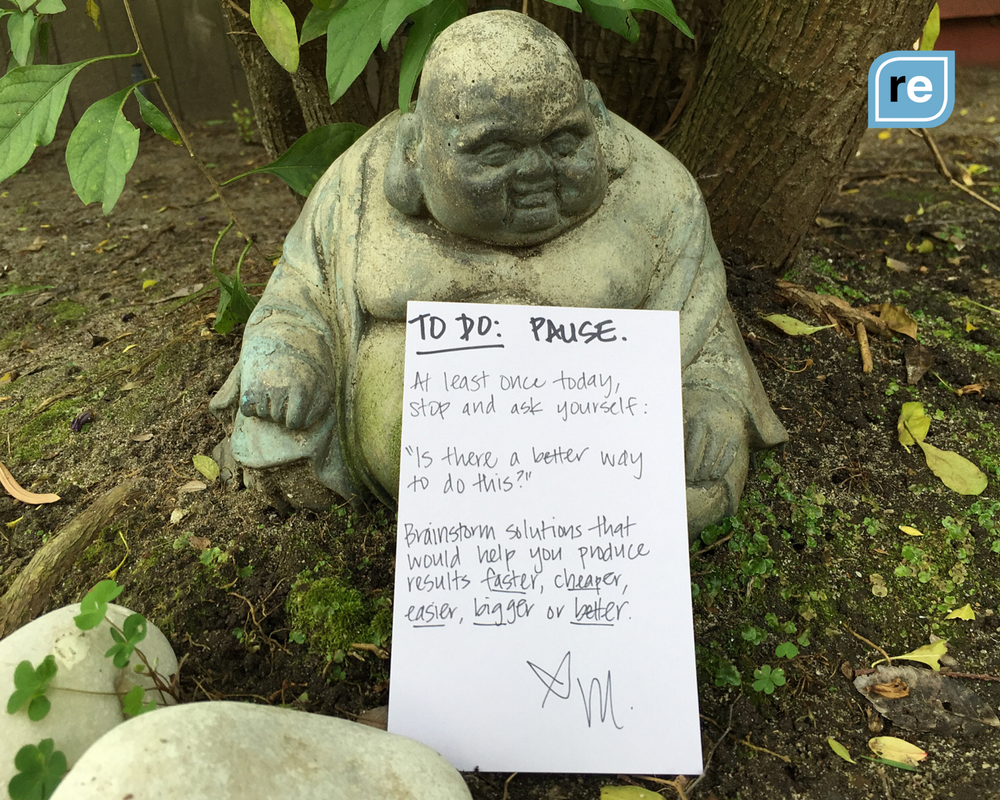
Whether you realize it or not, every day, you follow dozens of processes. There’s a wake-up process. A breakfast process. A shower process. A getting-ready-for-work process. A process to commute to work, and then even more processes to get settled at your workspace, conduct meetings and check your email.
If you think about it, everything in life is a decisionmaking process. And you can always optimize your algorithm.
So often, these processes become so ingrained that we never stop and ask, “Am I doing this in the most efficient way possible?” Instead, we simply continue performing the steps as we’ve always done them.
The trouble with this approach is that we are always changing. Especially the achievers that read Ridiculously Efficient. We’re always growing -- expanding our strengths, optimizing our lives and building greatness.
We are constantly evolving our capabilities, but we’re following the same old processes. Sounds like an ideal recipe for complacency.
How can you fight this? Here’s what I recommend.

1. Write out the current process. Think of one process you follow in your life. This can be anything from the steps you follow to clean your kitchen or an administrative task at work. What steps do you currently take to complete this task, and in what order?
2. Identify the obstacle. Which step in the process consumes the most energy, time or resources? A slightly different way to ask this: what 20% of the process leads to 80% of the hassle? Identify at least one obstacle that hinders your effectiveness.
3. Brainstorm ways to eliminate the obstacle or mitigate its harmful effects. Come up with a list of ideas -- some feasible, some wildly creative. Research as much or little as you need to here. If you really have trouble coming up with ideas, pretend you have a magic wand or three wishes from a genie and start again.
4. Pick a solution to experiment with, and create an initial hypothesis. Circle one of the solutions you came up with in Step 3 and ask yourself, “If I implement this, what will happen as a result?” You’ll soon discover whether your hypothesis was correct. The point here is to predict a future outcome, so that you can concretely declare whether your process change contributed to a better result.
By constantly questioning the effectiveness of your routines and processes, identifying optimization opportunities, and playing with new tweaks, you naturally uncover a better, faster way to do just about anything. How have you applied this in your life? Let us know in the comments below.
Notes Against Complacency is our on-going newsletter series that provides you with weekly tips for small ways to make big impact in your life. For more tips like this, sign up for the Ridiculously Efficient newsletter here.







